Sharks Kill Dolphin in Front of Horrified Beachgoers, Forcing Closures
Large shark spotted in water.
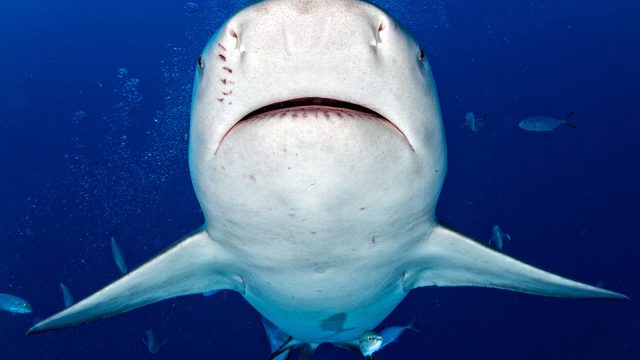
In Australia, a bull shark attacked and killed a dolphin in front of horrified beachgoers, forcing the closure of several popular beaches in northern Sydney. The Telegraph reports that the two bull sharks attacked the dolphin near Shelly Beach at 7 a.m. last Saturday.
A drone captured footage of the attack, including the gravely wounded dolphin struggling to survive after it was initially injured. Read on to find out more, including what experts are saying about the rising number of shark sightings near beaches and how you can avoid a shark attack.
Eyewitness Reports Huge Shark
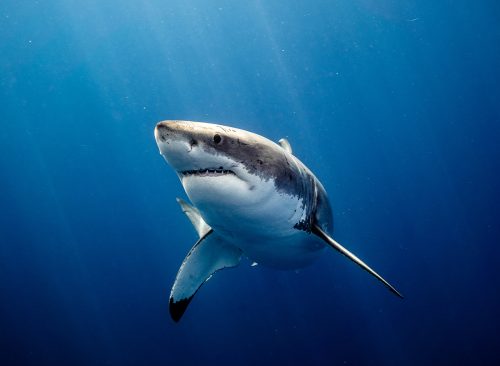
Emily Pettersson, a witness to the attack, said one of the sharks was about nine feet long. She had heard about an injured dolphin, so she swam through the shallow water, hoping to spot it. She caught a glimpse she wasn’t expecting: A shark heading straight for the dolphin again.
“Probably about 20 meters (65 feet) out in front of the beach, and I see the dolphin swim past on one side and I see a shadow on the right side,” she told the Nine Network. “So I turned around and there’s probably about a three-metre (9.8 feet) bull shark but it wasn’t even looking at me, it was just going for the dolphin.”
Beaches Closed, Event Postponed
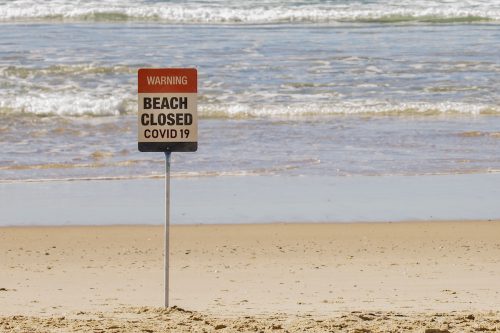
Drone footage appeared to show at least two sharks off the beach. The dolphin struggled to swim with injuries visible to its tail and side, the Telegraph reported. The injured dolphin circled in shallow waters before it became stranded on the beach and died. Images of the dolphin released by Surf Life Saving New South Wales showed at least five bite marks across its body.
Lifeguards evacuated swimmers from the water and closed Shelly and Manly beaches for the rest of the day. A large surf life-saving event, Manly Open Surf, was postponed. Drones continued to monitor for shark activity. No humans had been injured in the attack, officials said.
Dolphin May Have Been Ill and Vulnerable
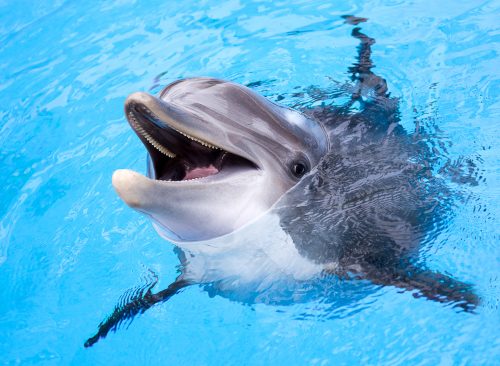
Another beachgoer told ABC, “we saw this dolphin just swimming around in the bay, which we thought was absolutely wonderful. “And the next thing, we walked on and saw, ‘hang on, there’s been a shark spotted, so we cannot go into the water.’ [We] came back and then saw the dolphin was here, on the beach, which is really incredibly sad.” It’s possible the unfortunate dolphin was sick before it was attacked, one expert said.
“We’re thinking it was an unwell dolphin to start with, so that’s why it would’ve stranded on the beach,” Jools Farrell, from the Organization for the Rescue and Research of Cetaceans in Australia, told the Telegraph. “In that area, there are quite a lot of sharks around, and if there is a dolphin in the area that is unwell, that would attract sharks as they can sense it.”
Shark Sightings More Frequent, But …
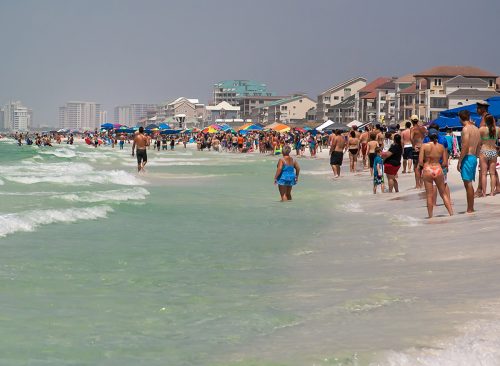
More shark sightings are being reported around the world. A study released last summer found that sharks near Florida are swimming closer to humans, desensitized to the light of urban areas and drawn to fish carcasses discarded by industry. Improving water quality, rising water temperatures due to climate change, and the resurgence of bunker (a type of fish water-dwelling predators feed on) may also be responsible.
But experts say we might see more reports about shark sightings not because there are more of them. It’s just that more people are taking video with drones and posting their sightings to social media.
How to Avoid a Shark Attack
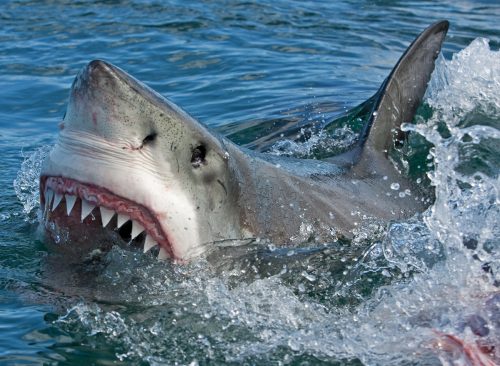
Shark attacks on humans are exceedingly rare. Humans aren’t part of sharks’ natural diet. But they may attack when frightened or surprised. To prevent a shark attack, experts advise not swimming at dawn and dusk, when sharks tend to be closer to shore and feeding; not swimming where there are schools of small fish offshore; and avoiding areas where people are fishing near piers.














